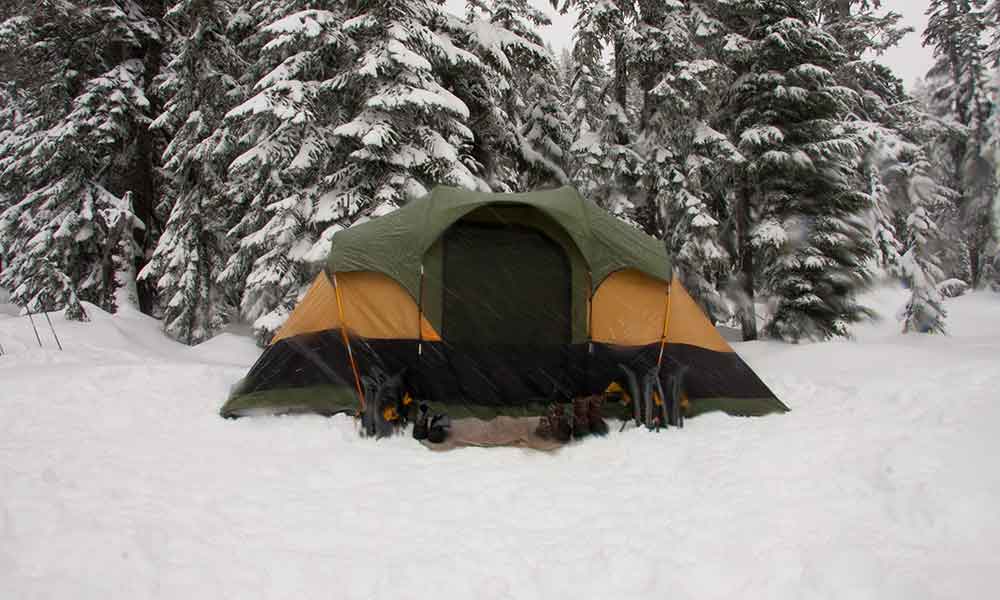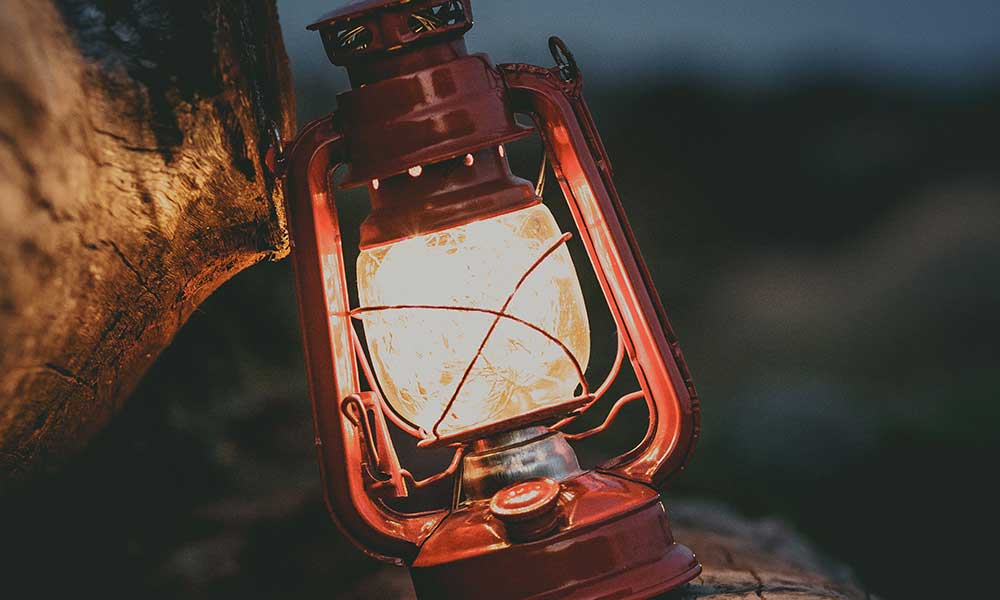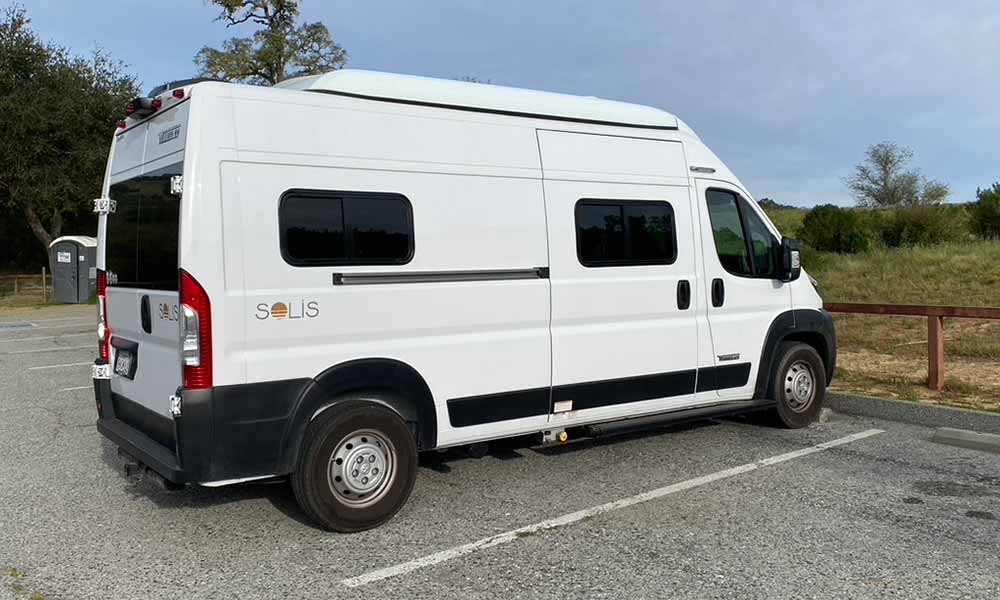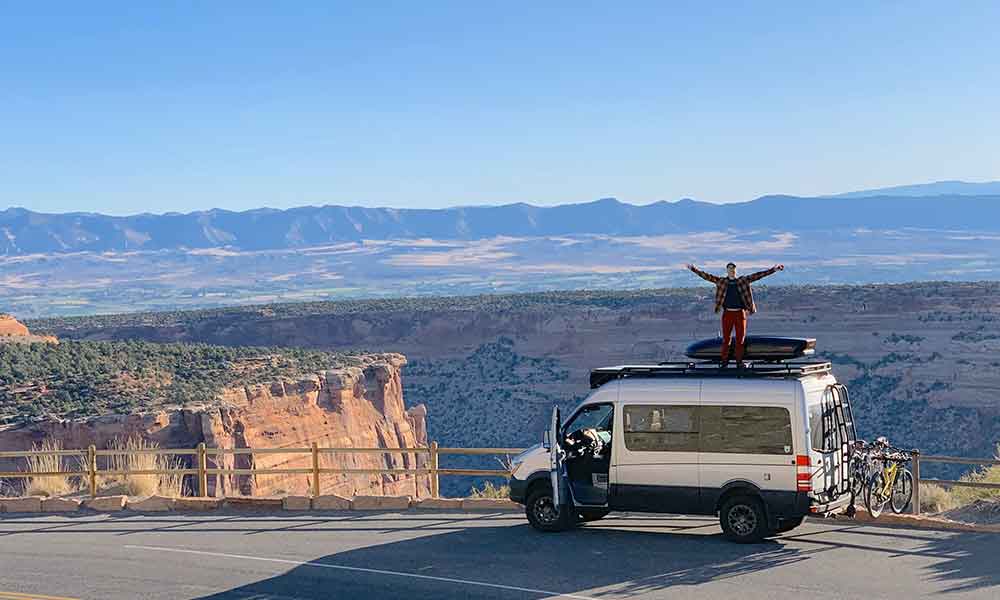Camping is a wonderful way to experience the outdoors and unwind from your busy life. However, for some, camping can be a rather chilling experience. If you don’t come prepared and with the required knowledge, you are sure to be cold at night when camping – regardless of the season. This is even truer if you are camping alone. So how does one stay warm camping in a tent?
There are many tips to stay warm camping in a tent. The most important thing is to keep warm and dry. Bringing the right equipment, including a tent, sleeping gear, and cooking gear, will help you stay warm. Dressing in layers and having extra base layers is another way to keep warm.
There are certain dos and don’ts when camping in a tent that will determine if you sleep warm and cozy or not. Bringing the right gear, setting up your tent correctly, and following some basic instructions will help you keep warm when camping in a tent, even during the coldest nights. To help you achieve this, here is a list of things to do to help keep you warm camping in a tent.
1. Choose The Right Tent
If you are often going to camp in cold weather, investing in a four-season tent is a good start. These tents are made of thicker materials than other tents and can withstand stormy weather better. However, if you’re not planning to go camping in the snow, a regular tent will do just fine. Canvas tents are better at retaining heat than nylon tents.
If you are only going on a short camping trip, for example, a weekend trip, bring a small tent. The smaller the tent, the easier it is to heat up and keep warm. Therefore, if you’re sleeping alone, bring a two-person tent. This will ensure sufficient space for your gear without having too much open space where cold air can accumulate.
Another tip to help keep your tent warm is to bring a rug or carpet to place on the ground. A mat will add a layer to insulate the heat in the tent, and it will prevent you from stepping onto the cold ground floor.
2. Bring The Right Sleeping Gear
A smaller tent will help retain heat, but it will not make a significant difference if you don’t have the right sleeping equipment. So the first sleeping gear you will need is a sleeping pad. A self-inflating sleeping pad is great to keep you off the cold ground at night.
However, the further away from the ground you are, the better. Having two sleeping pads, or placing your sleeping pad on a stretcher, will work even better for keeping warm. Stay clear of air matrasses as they tend to get excruciatingly cold at night.
Apart from the sleeping pad, you also need a good-quality sleeping bag. Down-filled sleeping bags are great for winter camping. However, some synthetic materials work just as well at insulating heat. Buy a sleeping bag that is suitable for at least three seasons. Add a sleeping bag liner for extra warmth if you still feel cold.
3. Pack A Warm Water Bottle
A warm water bottle can do wonders for keeping you warm. It is easy to heat you and works well in a sleeping bag. Place the water bottle at your groin when sleeping. This will allow the water to heat your major blood vessels, radiating the heat all over your body.
Take care when working with warm water and ensure the water bottle is sealed tightly to prevent leaks. Furthermore, check the condition of your water bottle regularly. Over time, the materials will start to weaken, and the water bottle can burst.
If you don’t like the idea of a warm water bottle, you can also bring disposable heat packs. They are less environmentally friendly but do a great job of keeping you warm in an emergency. Neither of these items takes up a lot of space, so taking them on any camping trip is a good idea.
4. Dress In Layers
Pack multiple layers to wear when camping. Starting with a thermal base layer is a great start. Be sure to pack an extra pair of thermals as they tend to get wet from sweat. Wet clothes need to be removed as soon as possible, as they will make you cold.
Bring several over-layers, such as jerseys and jackets, followed by a thick, down, or synthetic jacket. Sometimes, a waterproof jacket over the down one is required. Waterproof jackets not only protect you from the wind but also insulate your body heat.
For sleepwear, fleecy pajamas work wonders at keeping you warm. You can wear thermals underneath and a hoody on top to keep you warm. Bring wool socks to wear at night and winter gloves. A balaclava is another excellent idea to keep your head warm, and it won’t fall off while you sleep.
5. Don’t Go To Bed Cold
Getting into a sleeping bag when your extremities are cold will take forever to get warm. Therefore, you should already be warm when you go to bed. In addition, some exercises, such as jumping jacks or a quick jog to the bathroom, will help heat your core and ensure you sleep well.
In general, you shouldn’t wait until you are cold to dress warmer. Cold extremities take a long time to regain their heat. Therefore, staying warm at all times is a far better strategy. Use a hot water bottle or drink plenty of warm fluids, such as tea or hot chocolate.
6. Drink Warm Fluids And Eat Regularly
As mentioned, warm fluids do an excellent job of heating you from the inside. They also ensure you are hydrated. Many people become dehydrated in cold weather because they don’t feel like drinking water. However, your body needs to be hydrated to work correctly and heat the body.
Eating small meals at regular intervals is another way to stay warm. Eating causes your body’s basal metabolic rate to increase, which in turn causes your temperature to rise. Therefore, eating makes you warm. Eating hearty, warming meals, such as soups and broths, will further help you keep warm.
7. Bring The Right Fuel
If you use a stove to do most of your cooking, a liquid fuel stove is your best bet when camping in cold weather. Canister stoves work with gas. However, the gas reacts to cold weather and doesn’t work as effectively. Therefore, you should bring a liquid fuel stove or place a warm blanket around your gas canister to help it function properly.
8. Ensure Ventilation While You Sleep
You might want to keep your tent closed at night to keep the heat inside. However, you should allow for some ventilation in the tent. Leave some of the vents open or leave a small part of the door unzipped. Your breath will cause condensation to form in an unventilated tent as you sleep. In freezing temperatures, this condensation will freeze, causing your tent to become an icebox.
When the condensation melts in the morning, you might wake up cold and wet. Therefore, you should ensure some ventilation to prevent condensation from forming in your tent.
Conclusion
You can do many things to stay warm while camping. First, choose the right tent and insulate it properly. Next, buy a good quality sleeping bag, sleeping pad, and liners to keep warm. Pack a warm water bottle or disposable heat packs. Dress in layers and bring extra thermal layers.
Ensure you are warm when you go to bed. Drink plenty of warm fluids. Eat at regular intervals. Pack a liquid fuel stove. Ensure your tent has some ventilation. Armed with these tips, you should have a warm and pleasant camping experience. Remember, the main advice is always to be warm and dry.







